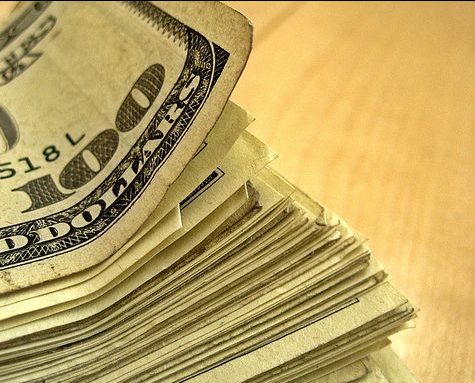The Wall Street Journal reports on a longstanding practice of health insurance companies, which offer Medicare Part D prescription drug benefits, bilking Medicare and taxpayers. As a result, the government overpaid these insurers to the tune of more than $9 billion over ten years. How did this happen and when will it stop?
As the WSJ explains, the Centers for Medicare and Medicaid Services (CMS) pays these insurance companies in two parts, based on federal legislation. The goal is to help ensure that they keep down Part D premiums, as well as to protect the insurers if they end up with too many members who take a lot of prescription drugs. But, the result is that many of the insurers, including the very biggest, project their base costs to be significantly higher than they end up being. These insurers benefit from their overestimates.
Under federal law, if Part D insurers estimate their costs at up to 5 percent more than they spend on prescription drugs and administration, they can keep the full amount of the overestimate. That money is on top of the profits embedded in their estimates, which are part of their administrative costs. If their estimate is more than 5 percent above their costs, they get to split the extra dollars, above the 5 percent, with the government.
It’s a confusing formula. But, there are some big takeaways. Part D insurers make off like bandits with taxpayer dollars if they overestimate their costs. If Medicare administered the drug benefit directly, it would save billions of dollars. If it negotiated drug prices or paid drug prices based on the average of what other countries pay, it was save some $250 billion a year more.
CVS Health, UnitedHealth and Humana, three of the largest Part D insurers covering about half of all Part D participants, profit most at the expense of taxpayers. And, CVS effectively concedes that it cannot afford not to overestimate costs if it is to protect its finances. “[W]e can’t have years where we lose money.”
The WSJ analysis revealed that almost seven in ten people with Medicare were enrolled in a Part D plan that overestimated its costs by 5 percent or more. More than nine in ten people (93 percent) enrolled in a UnitedHealth Part D plan were in a plan that had overestimated costs by at least 5 percent.
The big Part D health insurance companies have the data they need to submit accurate bids to CMS. They would not so consistently overestimate their costs to such a high degree if there were a financial disincentive for them to do so. But, they have every incentive to overestimate their costs, bilk taxpayers and deliver their shareholders greater returns. Rather than penalizing them for their overestimates, the government rewards them. It allows the insurers to keep all of the excess funds up to five percent, along with some of the excess funds over that amount.
Isn’t it time for the government to rein in drug prices and fold the prescription drug benefit directly into traditional Medicare?
Here’s more from Just Care:
- Insurers donate to Democrats in attempt to undermine support for Medicare for all
- CVS Caremark accused of $1 billion in Medicare drug fraud
- Aetna under investigation for denying care without appropriate review of medical records
- UnitedHealth charged with enrollment fraud
- New study finds Medicare for all generates overall savings of more than $5 trillion








Health insurance companies wrote and are benefiting enormously from the Affordable Care Act. They have been spending over 35% of premium dollars received on gatekeepers denying medical care reimbursement. Their health insurance premiums allow them to access co-pays, deductibles, and exclusions as you seek medical care. It is a deceitful trap they have been playing for decades because they spend even more of your premium dollars influencing legislation that denies your right to fair reimbursement claims.
I have just recently had trouble with them getting my opioid covered. I have been on it for years. Never had issue before and the coverage was the same as with any other med I purchased. Now first they refused any coverage absent an “authorization” from my doctor. Strange since giving me the prescription ifs authorizing it. Then 2 pharmacies i went to told me my cost due was now 43 (and 47) $. The one pharmacy, walmart which worked very hard for me to find the lowest cost, refused any discount card such as their own or Good Rx, apparently cause was an opioid. CVS which also went out of their way to find the best cost, was able to use good Rx but I still had to pay 36$ almost 3x what I used to have to pay for it (and mind you this is the same plan that gave me no problem previously and cost only 14$. To me looks like working to profiteer. I pay the premiums then then refuse to cover at aall, and some patients who need the script filled immediately might pay the entire cost, so the plan pays zilch and hets the benefit or your premium. Now that they are charging higher same thing. I pay my premium and have to pay much moreo out of pocket saving them the money of paying as much.